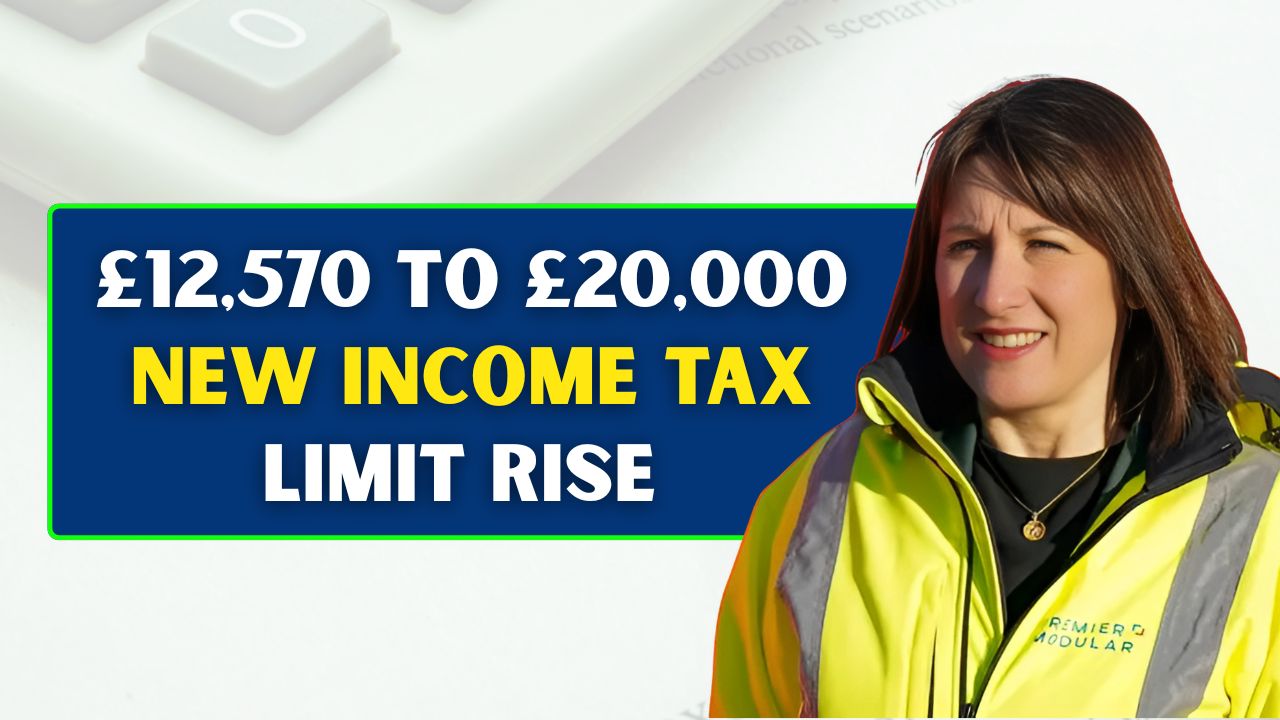A significant policy shift is on the horizon for millions of pensioners in the United Kingdom. The government has proposed a major change to the personal income tax threshold, with the new limit set to increase from the current £12,570 to £20,000.
This development is expected to bring substantial financial relief to state pensioners, many of whom have seen their incomes squeezed by inflation, rising energy costs, and increased living expenses.
This move, still awaiting formal implementation but already drawing national attention, is poised to benefit a wide section of retirees who rely heavily on their state pensions and modest private incomes. Let’s explore what this change means, how it will impact pensioners, and what to expect in the near future.
The Current Tax Threshold and the Need for Change
At present, the Personal Allowance the amount of income one can earn before paying any income tax stands at £12,570. This threshold has been frozen since 2021 and is expected to remain unchanged until 2028 under existing fiscal policy. However, the state pension has continued to rise, particularly under the Triple Lock guarantee, which ensures pensions increase in line with inflation, earnings, or 2.5%, whichever is highest.
As a result, many pensioners are now earning close to or above the £12,570 threshold purely from their state pension alone. For instance, with the full new state pension reaching around £11,500 annually in 2025–26, a small private pension or savings interest could easily push a retiree into a tax-paying position.
This has created a situation where pensioners many of whom live on fixed incomes are being taxed on modest earnings that were previously exempt. The proposed rise in the tax threshold to £20,000 aims to rectify this, allowing retirees to keep more of their income.
What the New Tax Threshold Will Mean for Pensioners
Raising the Personal Allowance to £20,000 would mean that pensioners with annual incomes below this new threshold would pay no income tax at all. This could save retirees hundreds of pounds annually, depending on their overall income.
The following table shows the difference in tax liability under the current and proposed thresholds:
| Annual Income | Tax Paid at £12,570 Threshold | Tax Paid at £20,000 Threshold | Annual Tax Saving |
|---|---|---|---|
| £13,000 | £86 | £0 | £86 |
| £15,000 | £486 | £0 | £486 |
| £18,000 | £1,086 | £0 | £1,086 |
| £20,000 | £1,486 | £0 | £1,486 |
| £22,000 | £1,886 | £400 | £1,486 |
As shown, the tax savings could be considerable, particularly for those earning just above the current threshold.
When Will the Change Take Effect?
While the new limit has not yet been enacted into law, discussions suggest the change could be introduced in the next financial year or following a general election, depending on the government’s fiscal strategy.
The proposal has gained traction among pensioner advocacy groups and some political parties who argue that older citizens should not be penalised for modest incomes during retirement.
It is expected that further details will be included in an upcoming Budget or fiscal statement. Pensioners are advised to keep an eye on government updates and announcements from HM Revenue & Customs (HMRC).
Broader Implications for Retirees
This change would not only affect income from the state pension but also apply to other sources such as:
- Private pensions
- Annuities
- Savings interest
- Part-time earnings
It could also influence eligibility for certain means-tested benefits, as net taxable income calculations would change. For retirees on the edge of income thresholds for benefits such as Pension Credit or Housing Benefit, the tax relief could either improve eligibility or slightly alter their calculations.
Ultimately, the increased threshold aligns with the broader aim of reducing the tax burden on vulnerable groups and recognising the growing cost of living challenges faced by older populations.
Conclusion
The planned rise of the income tax threshold from £12,570 to £20,000 could become one of the most impactful tax reforms for UK pensioners in recent years. It not only acknowledges the financial pressures faced by retirees but also helps protect modest incomes from being unduly taxed.
While the timeline for implementation remains uncertain, the direction is clear: providing greater financial security for pensioners is back on the policy agenda.



